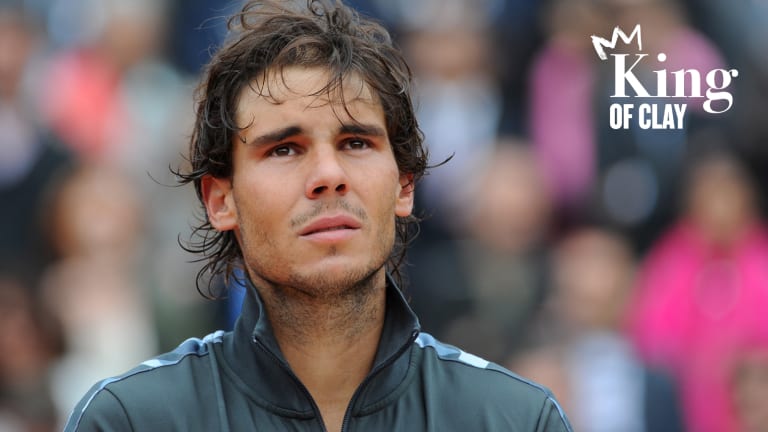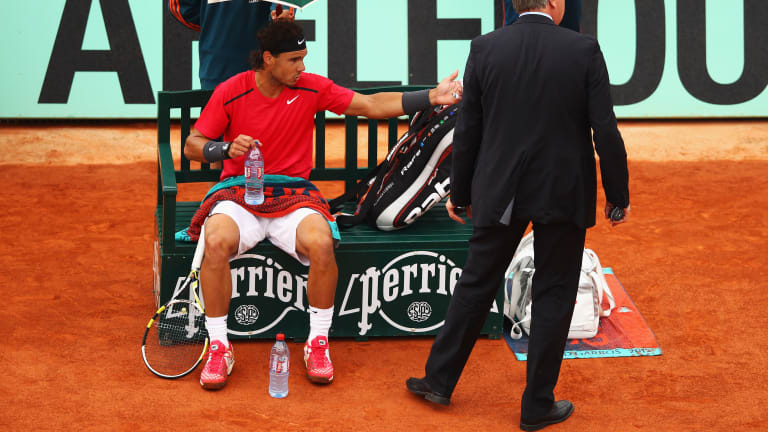10 Matches That Made Rafa the King of Clay
No. 8, 2012: Nadal wins record seventh Roland Garros by ending seven-match losing streak to Djokovic
By Apr 25, 202310 Matches That Made Rafa the King of Clay
No. 10, 2022: Nadal wins his 14th Roland Garros—and finally feels the crowd love in Paris
By Apr 27, 202310 Matches That Made Rafa the King of Clay
No. 9, 2013: Nadal and Djokovic led each other to a summit in staggering French Open semifinal
By Apr 26, 202310 Matches That Made Rafa the King of Clay
No. 7, 2011: Nadal ends a difficult match with del Potro, as well as a trying season, with Davis Cup glory
By Apr 24, 202310 Matches That Made Rafa the King of Clay
No. 6, 2009: A "death in the afternoon" for Nadal, who edges Djokovic three-set Madrid marathon
By Apr 21, 202310 Matches That Made Rafa the King of Clay
No. 5, 2006: Nadal refuses to lose in five-hour, five-setter against Federer in Rome
By Apr 21, 202310 Matches That Made Rafa the King of Clay
No. 4, 2005: Rafael Nadal and Roger Federer bring their burgeoning rivalry to clay
By Apr 19, 202310 Matches That Made Rafa the King of Clay
No. 3, 2005: Nadal takes the next step, and puts on his big-boy piratas, in Coria epic in Rome
By Apr 18, 202310 Matches That Made Rafa the King of Clay
No. 2, 2004: Nadal heeds Moya's words, tops Roddick in raucous Davis Cup final
By Apr 17, 202310 Matches That Made Rafa the King of Clay
The 10 Matches That Made Rafael Nadal the King of Clay: Our countdown begins
By Apr 16, 202310 Matches That Made Rafa the King of Clay
No. 8, 2012: Nadal wins record seventh Roland Garros by ending seven-match losing streak to Djokovic
He won it over two days, in wildly fluctuating and frustrating conditions. And he won it despite having the closest thing he has ever had to a meltdown in an important match.
Published Apr 25, 2023
Advertising

Nadal’s celebration may have been his most emotional at Roland Garros.
© Corbis via Getty Images
Advertising
Advertising

The heavy conditions and Djokovic's just-as-heavy shotmaking conspired against Nadal on the first day of the final.
© 2012 Getty Images